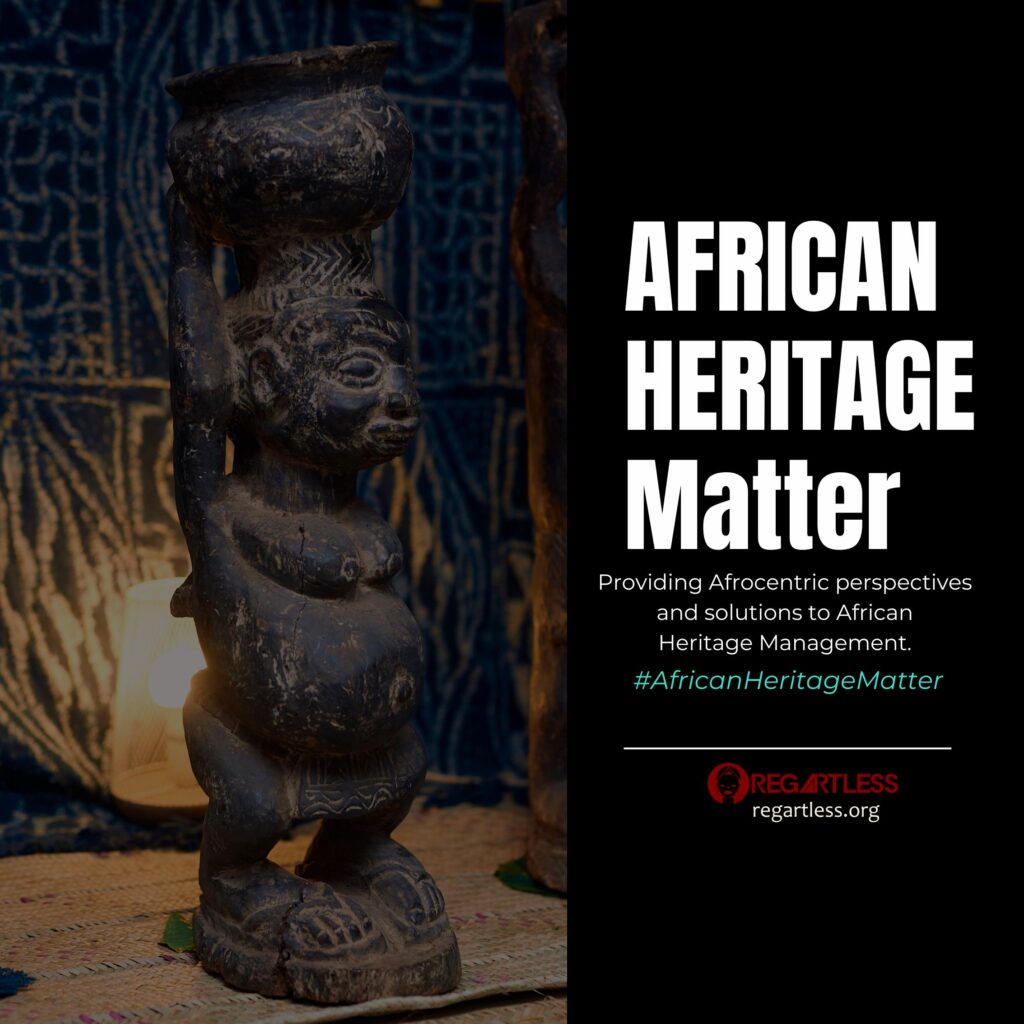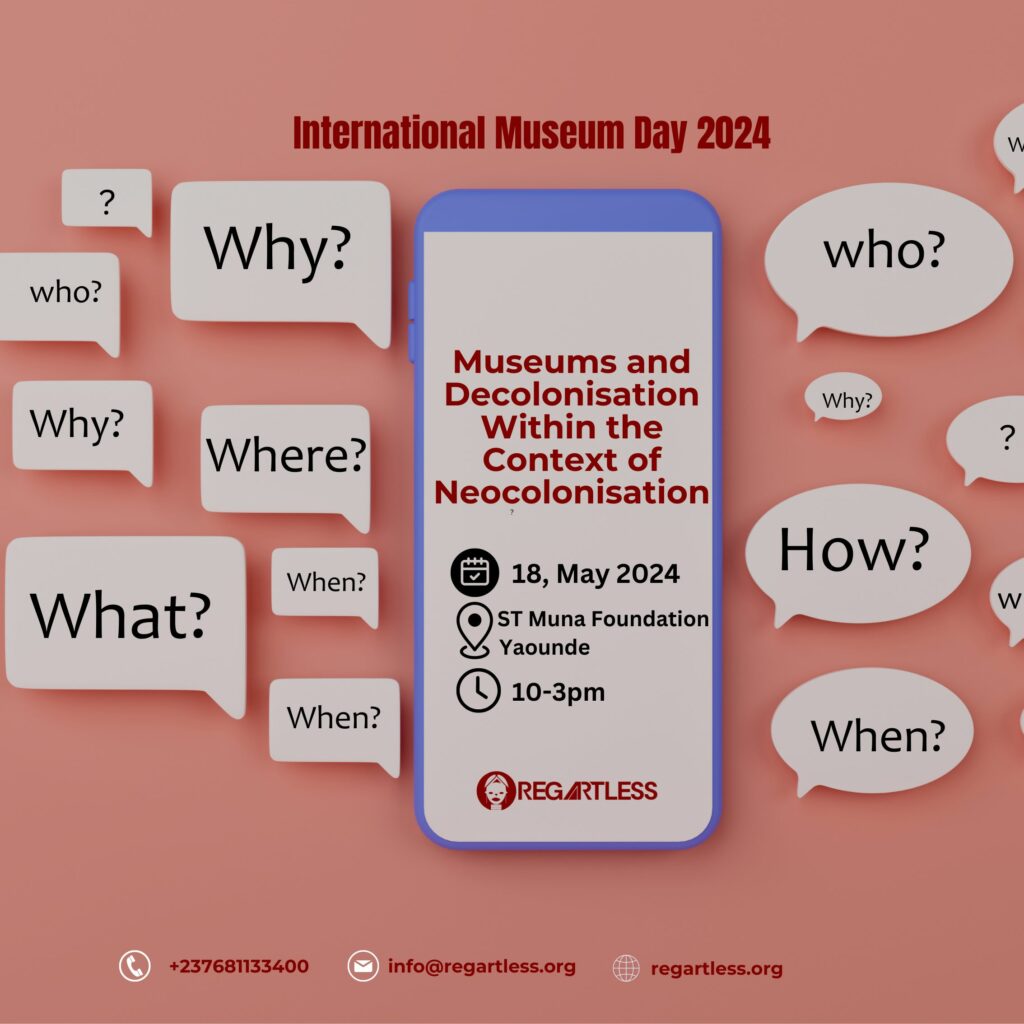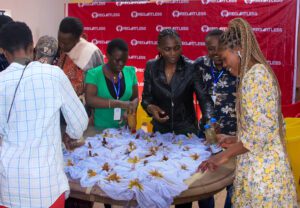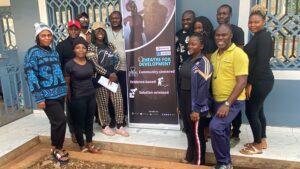
May 18th marks International Museum Day(IMD), initiated by the International Council of Museums(ICOM) in 1977. This year marks the 47th celebration of World Museum Day, which is aimed at celebrating and promoting the efforts of Museums and drawing the attention of the public worldwide every year. Under this year’s team, “Museums for Education and Research”, REGARTLESS is organising an open dialogue under the subthemed “ Museums and Decolonisation within the context of Neocolonialism”.
Decolonization has become a key part of social and political discourse within Africa in this age of globalization where colonialism is still so discernable within the socio-political and economic spaces of the continent. In this setting, museums have been identified as a key player within these arguments for Africa’s complete emancipation and call for continental integration. A thought-provoking approach to decolonization puts museums in a position where they have to confront the people’s past and change their inherited structures and practices that do not represent their true ideals, values, and identity, an uncomfortable reality.
On this World Museum Day 2024, REGARTLESS is joining the ongoing discussions on the decolonization of the African by spearheading a contextualized panel conversation on decolonization African museological practices and people’s habits and mindsets, which is an indispensable part of its existence and functionality. This session seeks to ask critical questions on museums within the context of Africa and Afro-centric perspectives and solutions to African Heritage management. REGARTLESS has intentionally chosen to host this open panel conversation on World Museum Day with the principal objective of identifying the role of museums in denouncing persistent coloniality within this era of heightened neocolonialism.
.
Panelist 1: Ndika Tanjong – Director of ST Muna Foundation/museum
The role of Museums in contemporary Africa
This part clearly answers the many questions and controversies surrounding the existence of museums, as well as the intense debates on whether traditional cultural spaces are more relevant in today’s African societies than museums. It recapitulates the entire contentions for the day and provides the audience with an understanding of whether museums are necessary. It can also open up new horizons for museums within the Cameroonian/African public space.
What are African/Cameroonian museums holding?
Why and how are they keeping them?
What are the conditions necessary for setting up a museum?
What are the common challenges that museums face?
How can museums contribute specifically to a country’s emerging vision and sustainable development agenda?
Panelist 2: Ngong Elijah – Museum Practitioner/Carver
Sustainability of African heritage in pre and post-colonial era.
This is a key question that requires sincere and profound probing. It comes at a time when there are ongoing debates and dialogues on the restitution of African artifacts looted during the period of European imperialism. Within this context, other key questions must be asked, leading us to the salient question of preserving tangible artifacts. This question has sparked an unending debate between European museums and artifact holders on the one hand and African communities seeking restitution as an effort to re-assert their cultural identity on the other.
- What has been the century-long heritage management practices in Africa?
- How has this evolved over time?
- What new coping mechanisms have they adopted to enhance the survival of these artifacts within communities and museums?
- What challenges have they been facing regarding these indigenous methods?
- Are local methods sufficient and can they become the continent’s collective pride and asset?
Panelist 3: Dr Mbuh Dora – University Lecturer, African Literature – University of Yaounde 1.
Can museums and traditional cultural spaces find a common ground?
In the growing context of restitution, Africans are becoming more enlightened oh how museum spaces not only serve the most acclaimed purposes, such as research and education, but also spaces for power play, suppression, extractivism among others. More and more communities are rethinking their Traditional cultural spaces and practices as viable spaces of learning, preservation, and conservation. A contextualized dialectics on their similarities and dissimilarities is critical to understanding how the two work. It further opens up conversations about what is more relevant in today’s African society, or coexistence. This comparative approach pushes for further questions to be asked to realize a more comprehensible place for these two structures within Africa’s decolonization process and development agenda.
- What are traditional cultural spaces?
- What similarities and differences do they have with museums?
- How relevant are they within the socio-economic and political space of Africa’s identity and growth?
- Should traditional cultural practices be given more value than museums?
- What are the challenges of African traditional cultural spaces?



